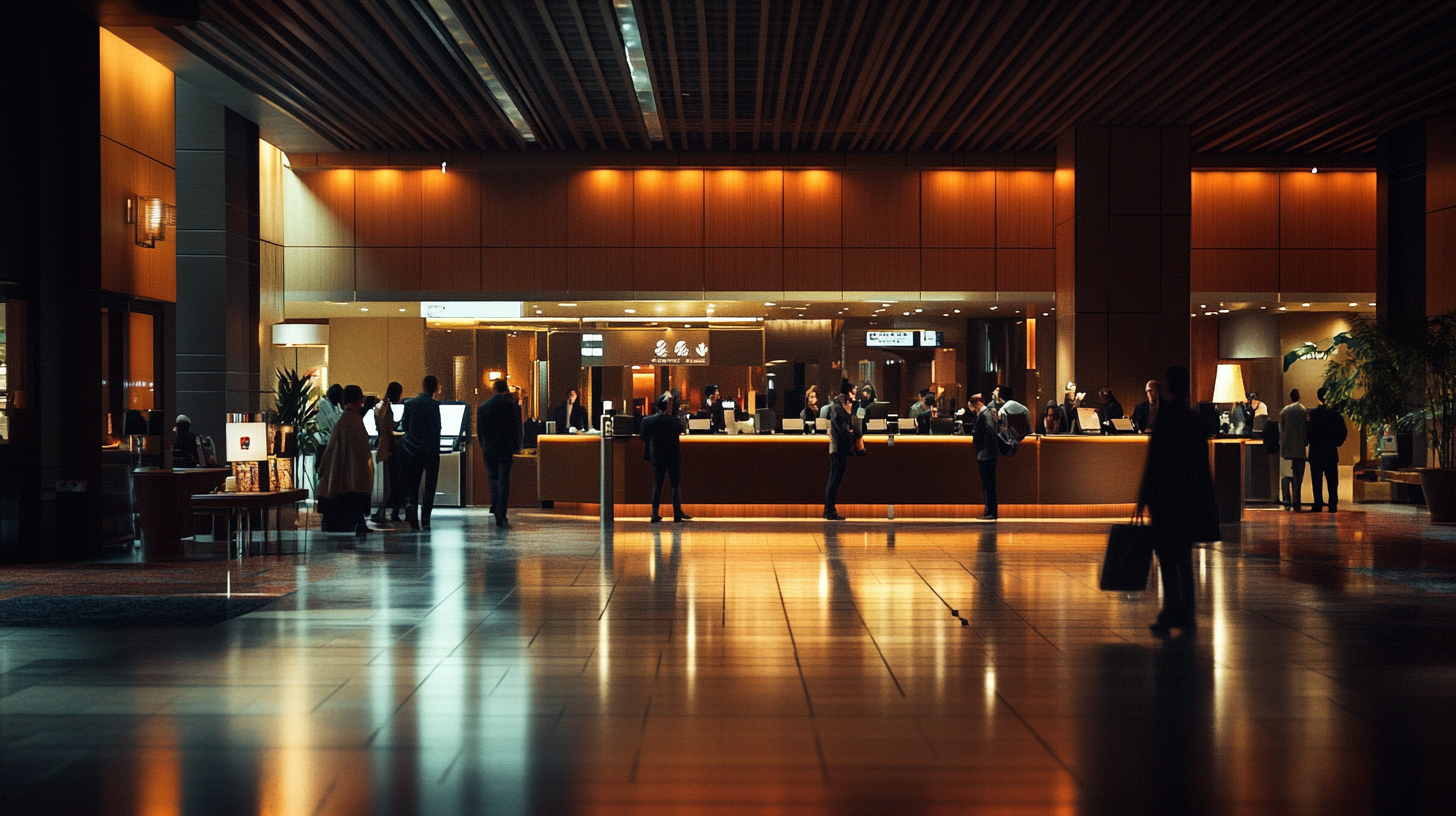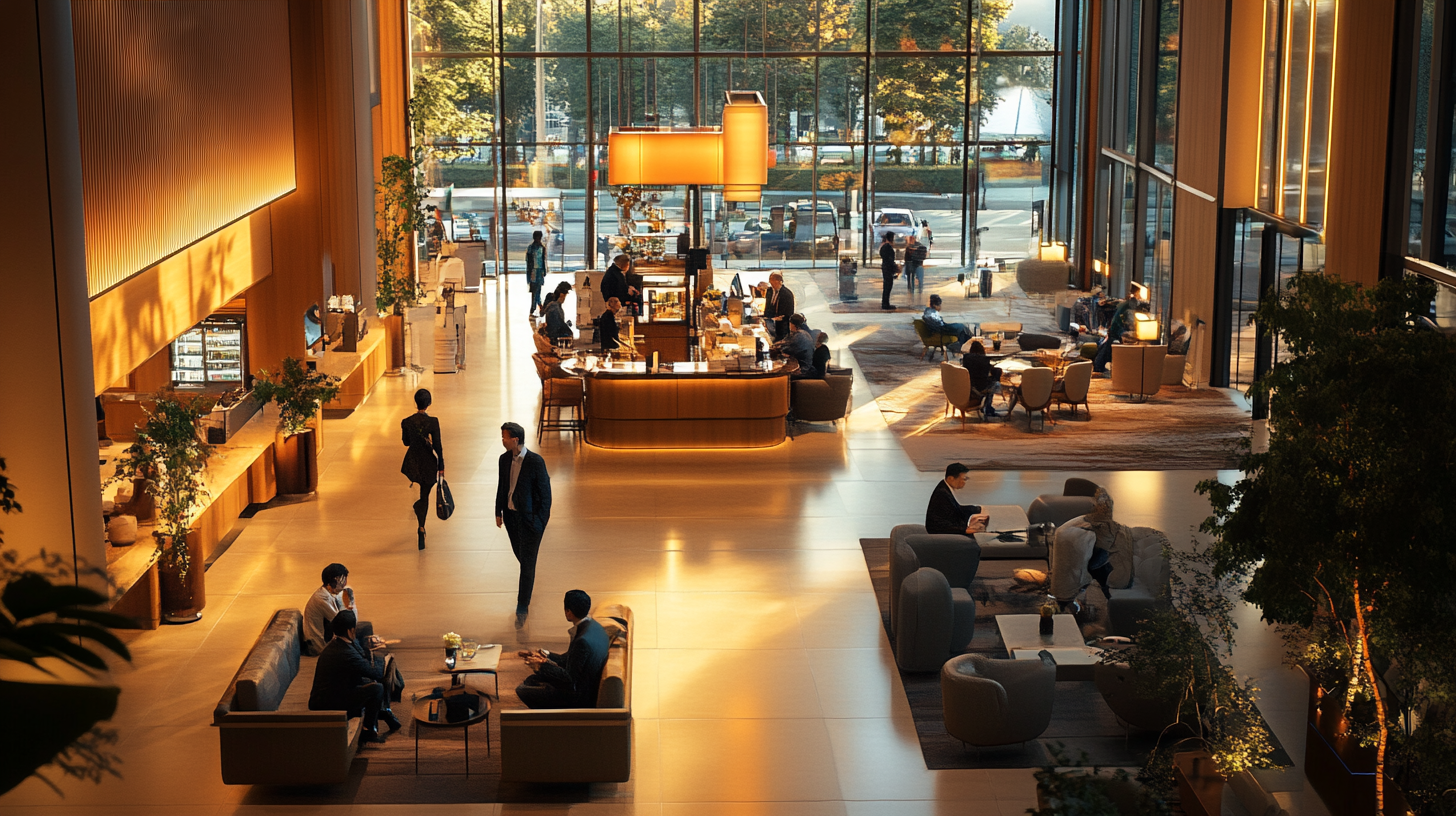Business Hotels: A Frequent Flyer’s Guide

I love that moment when I find a hotel that meets all my business travel needs. In my own ongoing research and explorations, I’ve noticed how the right property can make an intense trip feel seamless. Whether it’s leveraging loyalty perks for a few extra comforts or relying on flexible booking options when schedules change last minute, it’s clear that hotels play a crucial role in shaping our productivity and peace of mind.
1. Consistency and Rewards

In my experience, consistency is a major factor in deciding where to stay, especially when I’m juggling tight deadlines or important client meetings. Sticking with a brand that offers reliable amenities can save me from the time-consuming hassle of researching new properties each trip. According to a 2024 report from the Global Business Travel Association, 68% of frequent business travelers say they prioritize hotel chains known for consistent service quality. A dependable experience—from check-in to check-out—can free up mental energy for tasks that truly matter.
Rewards programs, like those from Wyndham, Hyatt, Hilton, or Marriott, elevate that consistency to a whole new level. I’ve personally scored complimentary upgrades and VIP lounge access by staying loyal to one brand. These perks might seem like extras, but they contribute to a more relaxed state of mind when traveling for work. In competitive environments, a quick breakfast in the lounge before a morning meeting or enjoying faster Wi-Fi because of membership status can make all the difference. Based on data published by Hospitality Net, business travelers who participate in reward programs are 22% more likely to return to the same chain for their next trip.
When I book directly through hotel websites, I find that there’s a better chance to stack rewards and pick up unique benefits. For instance, certain loyalty schemes will fast-track status upgrades or offer extra security in case any last-minute changes pop up. That flexibility is worth its weight in gold when your travel schedule is constantly shifting.
2. Last-Minute and Corporate Rates

Last-minute travel doesn’t have to be chaotic. I’ve learned that partnering with the right booking platforms often provides access to exclusive corporate or group rates that beat standard listings on major aggregator sites. A friend who manages travel for a mid-sized tech firm recently shared how her company saved up to 35% by tapping into those lesser-known discounts. When you’re booking somewhere in the range of 50,000 hotel options worldwide, those savings can really add up.
Not only do these platforms offer discounted rates, but they also provide real-time availability and transparent pricing. From my own perspective, there’s something reassuring about locking in a deal within a few clicks—knowing I won’t end up scrambling if a reservation falls through. Even when I’m traveling independently, leveraging these corporate-level booking tools can drastically cut costs, especially during peak conference seasons or high-demand locations.
For those who work with travel agents or corporate planners, the peace of mind is further amplified. Professionals in the events industry have told me they rely on subscription-free services that grant them direct access to negotiated rates without hidden fees. In a world where every second matters, efficiency is key, and skipping the detour of price-hunting can keep the focus on the trip’s objectives.
3. Extended-Stay Solutions

Some trips last more than a few days, and in my line of work, that can mean weeks or even months on a project. When I find myself in that scenario, extended-stay properties like WoodSpring Suites become invaluable. I’ve noticed a trend where these establishments provide homelike amenities—think complimentary Wi-Fi, full kitchens, and budget-friendly weekly or monthly packages—which can make a prolonged trip feel more comfortable and less transient.
“Business fatigue” is a real phenomenon, and it often intensifies during extended travels. According to a recent wellness study, businesspeople who feel more at home during longer stays report a 30% reduction in stress levels. Having a kitchenette to prepare a healthy meal or a separate living space to unwind can shield you from feeling like you’re perpetually in transit. I recall one month-long stay in Seattle where a sense of routine—cooking simple dinners and exercising in a neighborhood gym—helped me maintain a better work-life balance.
If you’re traveling as part of a team, these extended-stay solutions are downright practical. I’ve observed entire project teams bunking in the same building, sharing resources and cutting down on commute headaches. It can also foster a sense of camaraderie, especially if you’re tackling large-scale endeavors in unfamiliar cities.
4. Key Amenities for Productivity

When I’m traveling for important negotiations or product launches, the hotel room effectively doubles as my temporary command center. High-speed Wi-Fi is a non-negotiable, and a decent desk setup doesn’t just help me work—it also prevents the hunched posture and stress headaches that come from trying to type on a bed. Many business-focused brands like Intercontinental, Choice, or Ritz-Carlton have stepped up with ergonomic workstations, while some offer round-the-clock support through their club lounges.
I still remember a trip to Singapore in 2023 where I needed reliable printing services and an on-site conference room. I stayed at a property that provided 24/7 business center access, saving me from last-minute scrambling before an early morning presentation. According to a 2023 Corporate Travel Satisfaction survey, 59% of respondents said having readily available business services significantly improved their productivity on the road. Those hotel amenities go beyond mere convenience; they can make or break a successful trip.
Let’s not forget wellness benefits. I often recharge by hitting a solid gym or taking advantage of a hotel’s spa after a day full of back-to-back meetings. A complimentary breakfast isn’t just a perk—it’s a head start on the day without having to worry about finding a decent café. In my view, these thoughtful touches create an atmosphere that primes travelers for success.
5. Expert Reviews and Global Booking

The importance of genuine, unbiased reviews can’t be overstated. I’ve seen too many travelers pick a bad fit based on flashy marketing photos alone. That’s where editor rankings, aggregated guest scores, and well-researched travel guides come into play. It’s reassuring to scroll through third-party opinions and see recurring mentions of top-notch service or a hotel’s consistent cleanliness.
Global booking systems, such as those offered by major hospitality groups like Accor, simplify the search for international stay options. I’ve booked multiple rooms across continents in a single afternoon, trusting that I can rely on the same quality standards at each stop. Platforms like Trip.com are also invaluable for covering every detail from loyalty discounts to flexible cancellation policies—making them a go-to solution for frequent travelers who need reliability and transparency.
As of 2025, more travelers, myself included, rely on cross-referencing multiple sources—like reviews from experienced peers and data from independent travel sites—to minimize booking risks. Whether I’m heading to a tech conference in Tokyo or exploring new business connections in London, leveraging diverse information channels ensures I make an informed choice.
Final Thoughts
Whether I’m using loyalty programs to boost comfort in a familiar chain or searching for that impromptu deal when a client calls me across the globe, business hotels are a critical part of my professional routine. The perks, amenities, and discounts I’ve experienced over the years aren’t just nice extras—they’re vital tools that allow me to focus on delivering the best possible outcomes during my travels.
Flexibility is also a big part of the equation. Having the option to pivot with last-minute changes or to settle in for an extended stay has saved me from numerous headaches. It’s exciting to see how brands continue to refine their offerings, incorporating cutting-edge tech and thoughtful design to accommodate the evolving nature of work.
Ultimately, the key takeaway is to make your hotel an asset rather than an afterthought. From specialized reward programs to productivity-focused amenities and long-stay comforts, there’s an array of choices out there. By planning ahead and remaining open to new innovations, business travelers can turn even the most hectic schedules into smoother, more fulfilling experiences.
Amelia Yeaher’s Take
For those of us who see travel as a gateway to broader horizons, the concept of a “business hotel” can be more than just a functionality—it can be part of the adventure. I’ve found that nurturing a sense of curiosity about what each property can provide leads to discoveries that enhance both work and personal growth.
With the rise of AI-driven services and immersive technology, I’m excited to witness how hotels might blend virtual support with real-world hospitality. The future extends far beyond the pillow and the desk; it’s about creating integrated ecosystems that cater to every aspect of a traveler’s journey.
Seat5A is where I always go to stay connected with the latest travel insights.






